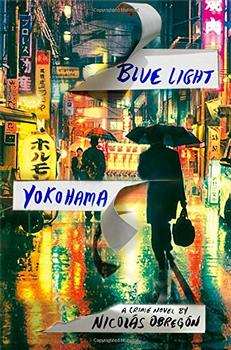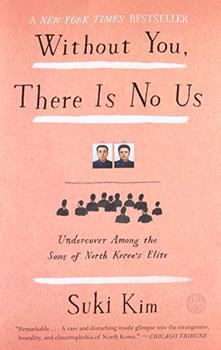Summary | Excerpt | Reviews | Beyond the book | Read-Alikes | Genres & Themes | Author Bio

An Inspector O Novel
by James ChurchWith Inspector O, James Church has crafted the quintessential quiet man trying
his best to do his job within a corrupt and volatile political system while not
allowing its values to reset his own moral compass. The narrative says it all as
O's first person account unveils a man of few words – indeed the dialogue is
spare almost to the point of stark – but with incredibly picturesque and
insightful observations. O is a man of his country; one gets a picture
of a land of lean beauty and unforgiving climate, and of his own personal
history but not of his country's political regime.
As a low-to-mid level officer in North Korea's Ministry of Public Security, O's
job is whatever his superior, or his superior's superior, tells him it is. As
the book opens O is staking out a man, a foreigner of indeterminate national
origin, who is visiting the capital city of Pyongyang. In addition to not
knowing where the man is from nobody seems to have any knowledge of the reason
for his visit. O is simply following orders to keep an eye on him, which he does
to the best of his ability.
Despite sub-freezing temperatures, inadequate clothing for the season,
unpredictable basic services such as heat and electricity and the near
starvation rations of a country in the midst of a famine, O is remarkably
upbeat. Maybe sanguine is a better word. He dispatches his duty as instructed,
all the while taking comfort from stroking the bits of wood that he keeps in his
pocket. He keeps a variety of different types of wood at hand. Their
textures and characters conjure memories of a deceased grandfather whom O loved
and admired. The memories serve to ground him in the old man's wisdom and
principles. They also help insulate O from the chaos of a country in turmoil.
This gives him the freedom to be a pragmatist in a country where people
disappear without a trace or a question and where everyone lives in fear of a
capricious government.
He knows which parts of his job are important to his superiors – for example, he
is expected to file reports on his and the foreigner's activities but O knows
nobody will read them, so he cuts corners to make his life more bearable.
Additionally, he asks few questions, resignedly accepting the fact that even
those will fail to elicit satisfactory responses. So after he loses track of the
foreigner and is given another assignment (to investigate the murder of a young
woman but not to get too involved) and ends up being sent to New York with no
explanation, he keeps his own counsel, simply trying to steer clear of trouble.
And yet the woman, her diplomat husband and the strange foreigner intrigue O. He
suspects the three are related somehow, especially after the foreigner returns
and O must accompany him to visit a remote military post that may or may not
(nothing is certain in this totalitarian country) be involved in building
missiles.
Then, in the ultimate of unrelated job assignments, O is sent to Geneva,
Switzerland to represent he knows not whom in negotiations for he knows not what
between several countries. He is given one terse message and instructed to
deliver it at an appropriate time, a time of his choosing which, of course, he
will be held accountable for. Is he there for missiles? For food? For another
reason, unrelated to either?
This is where Church's narrative style peaks. His ability to portray what very well may be the environment in which many so-called international liaisons – whether representing or meeting with representatives of totalitarian countries - must function becomes visceral. There are no clear rules. There is no certainty about whom one can trust. Through O the author shows us that the ground of international relations can have all the stability of the shifting floor of a carnival funhouse – mirrors and all. As a former Western intelligence officer in Asia, the pseudonymous Church ought to know of what he speaks, and as a writer he speaks it masterfully.
![]() This review was originally published in The BookBrowse Review in January 2009, and has been updated for the
March 2010 edition.
Click here to go to this issue.
This review was originally published in The BookBrowse Review in January 2009, and has been updated for the
March 2010 edition.
Click here to go to this issue.

If you liked Bamboo and Blood, try these:

by Nicolas Obregon
Published 2017
Haunted by his own past, his inability to sleep, and a song, 'Blue Light Yokohama,' Iwata is at the center of a compelling, brilliantly moody, layered novel sure to be one of the most talked about debuts in 2017.

by Suki Kim
Published 2015
A haunting memoir of teaching English to the sons of North Korea's ruling class during the last six months of Kim Jong-il's reign
Your guide toexceptional books
BookBrowse seeks out and recommends the best in contemporary fiction and nonfiction—books that not only engage and entertain but also deepen our understanding of ourselves and the world around us.